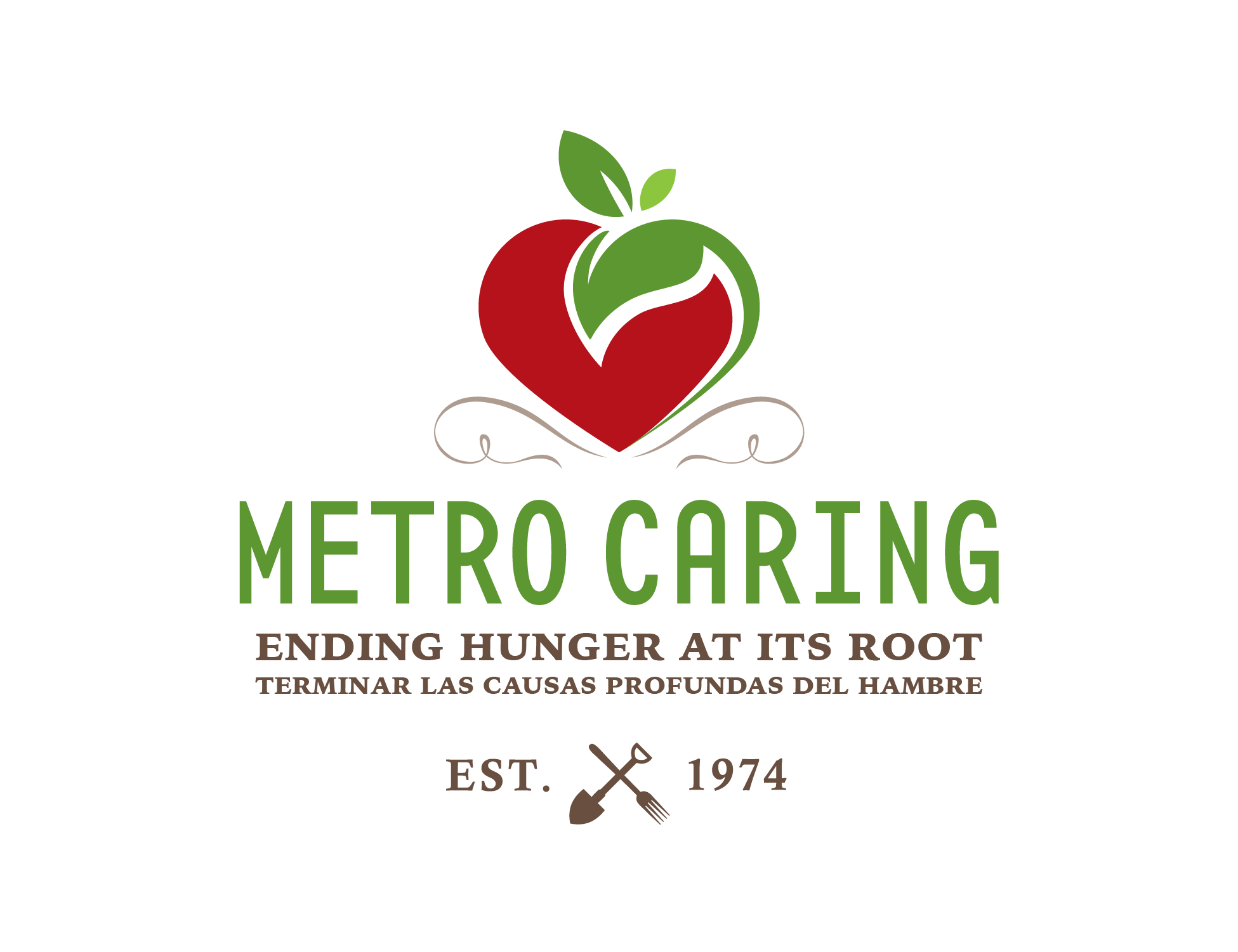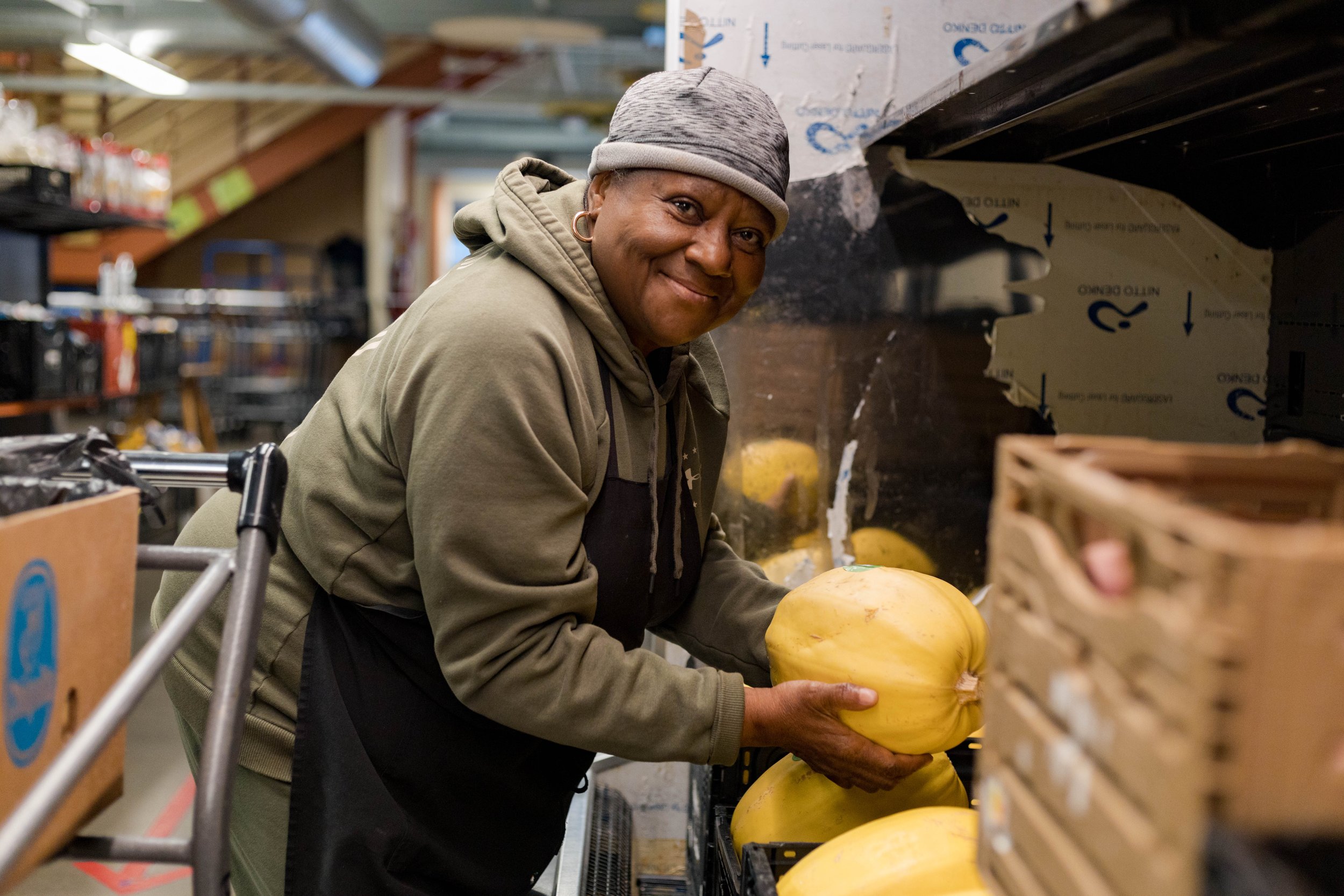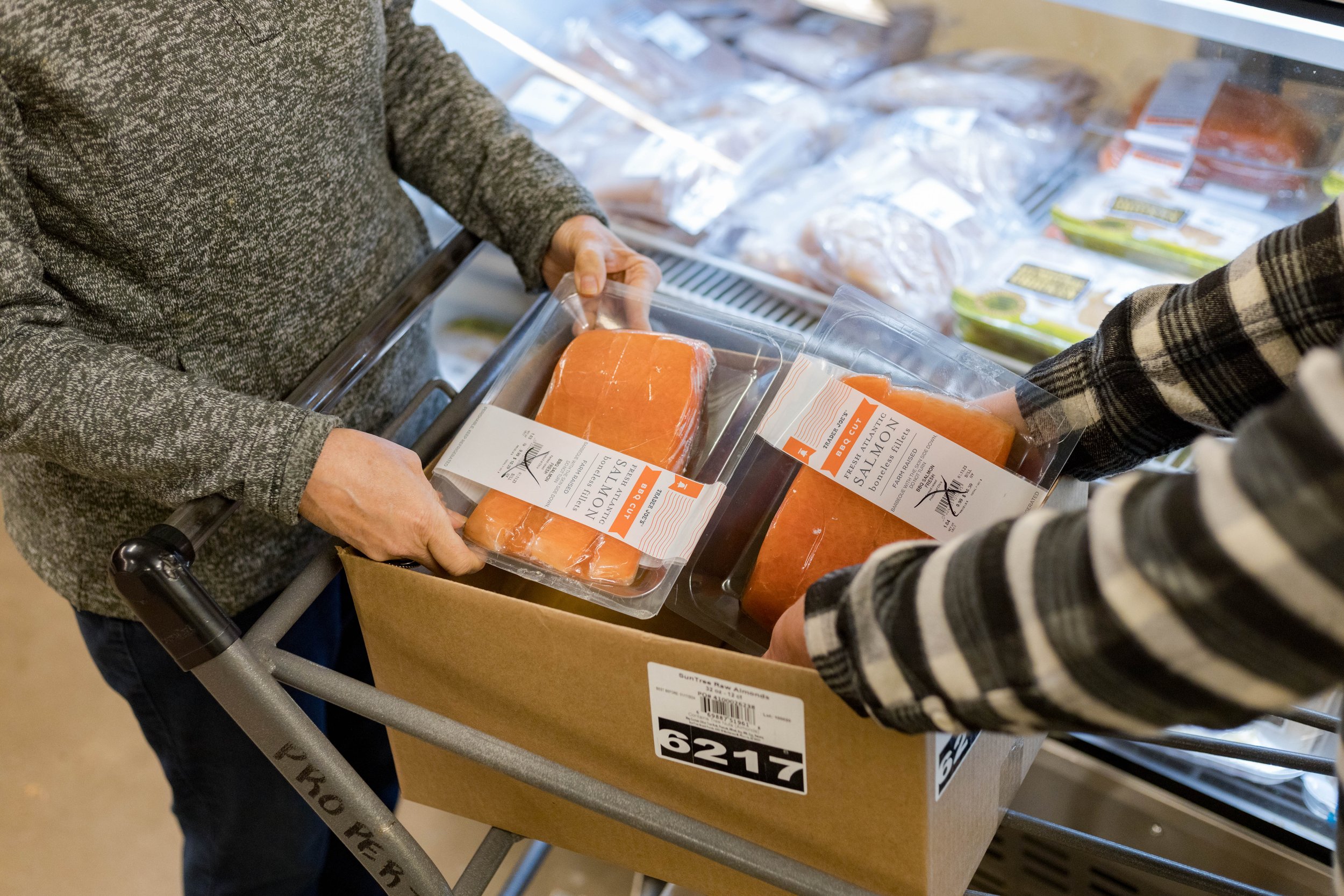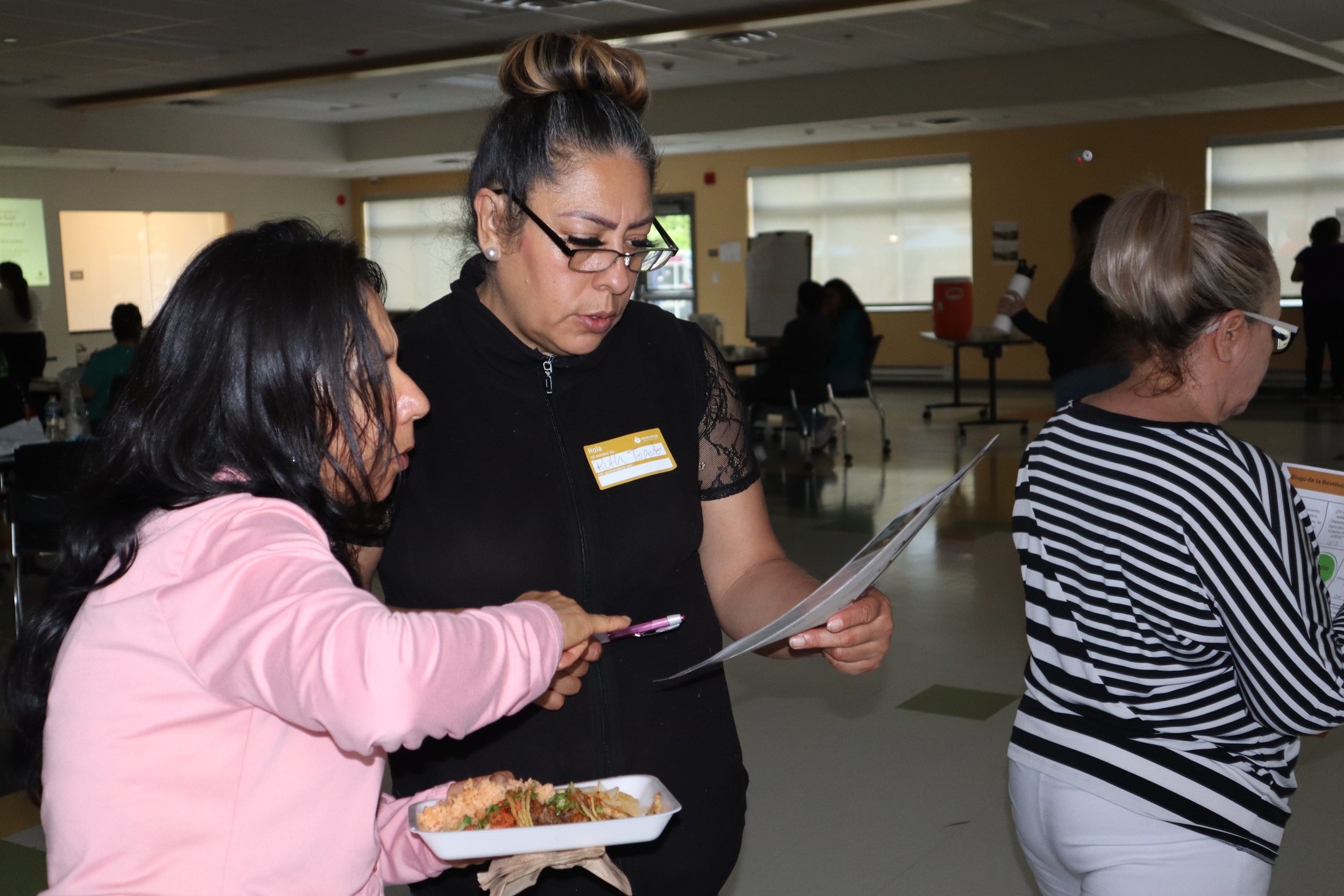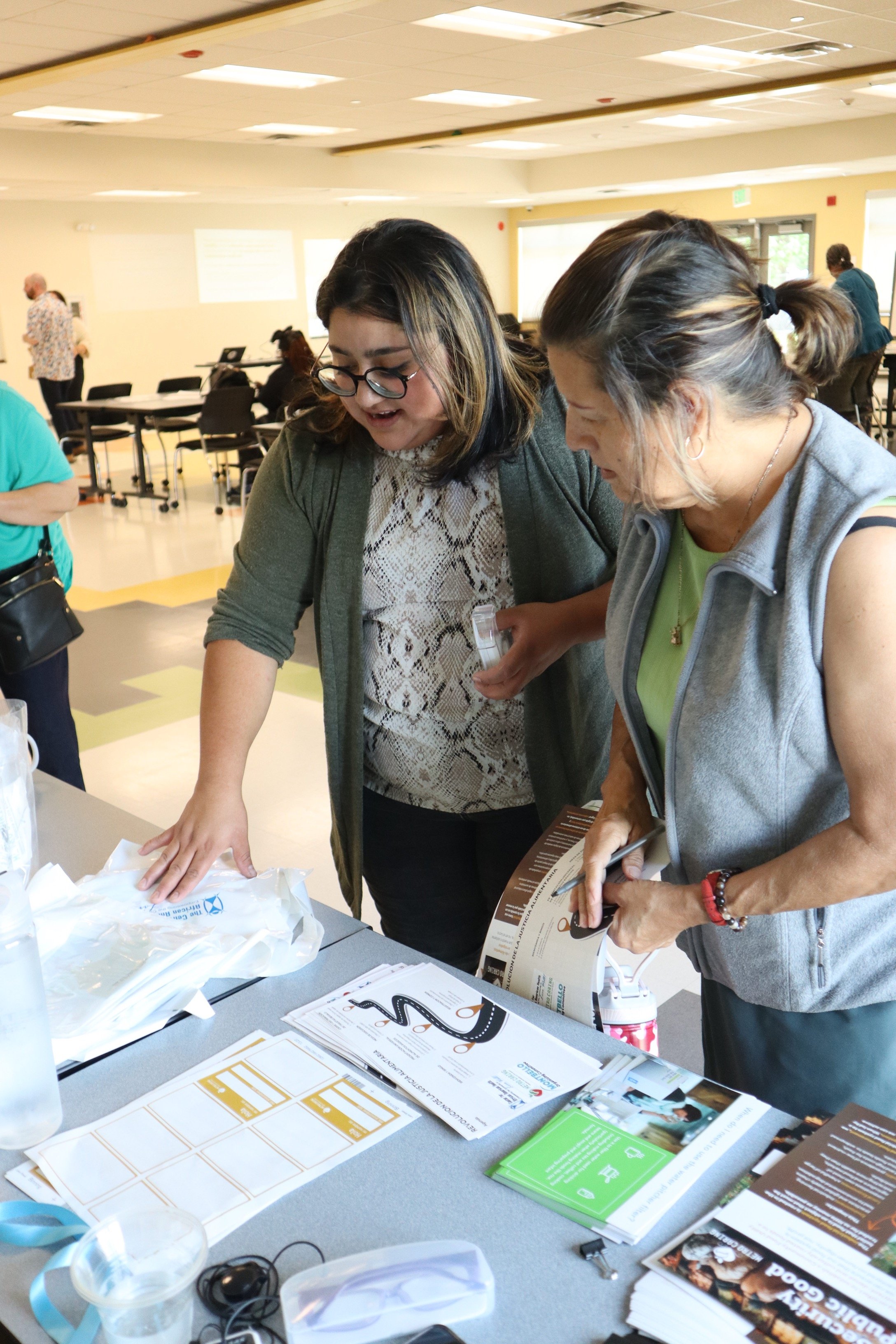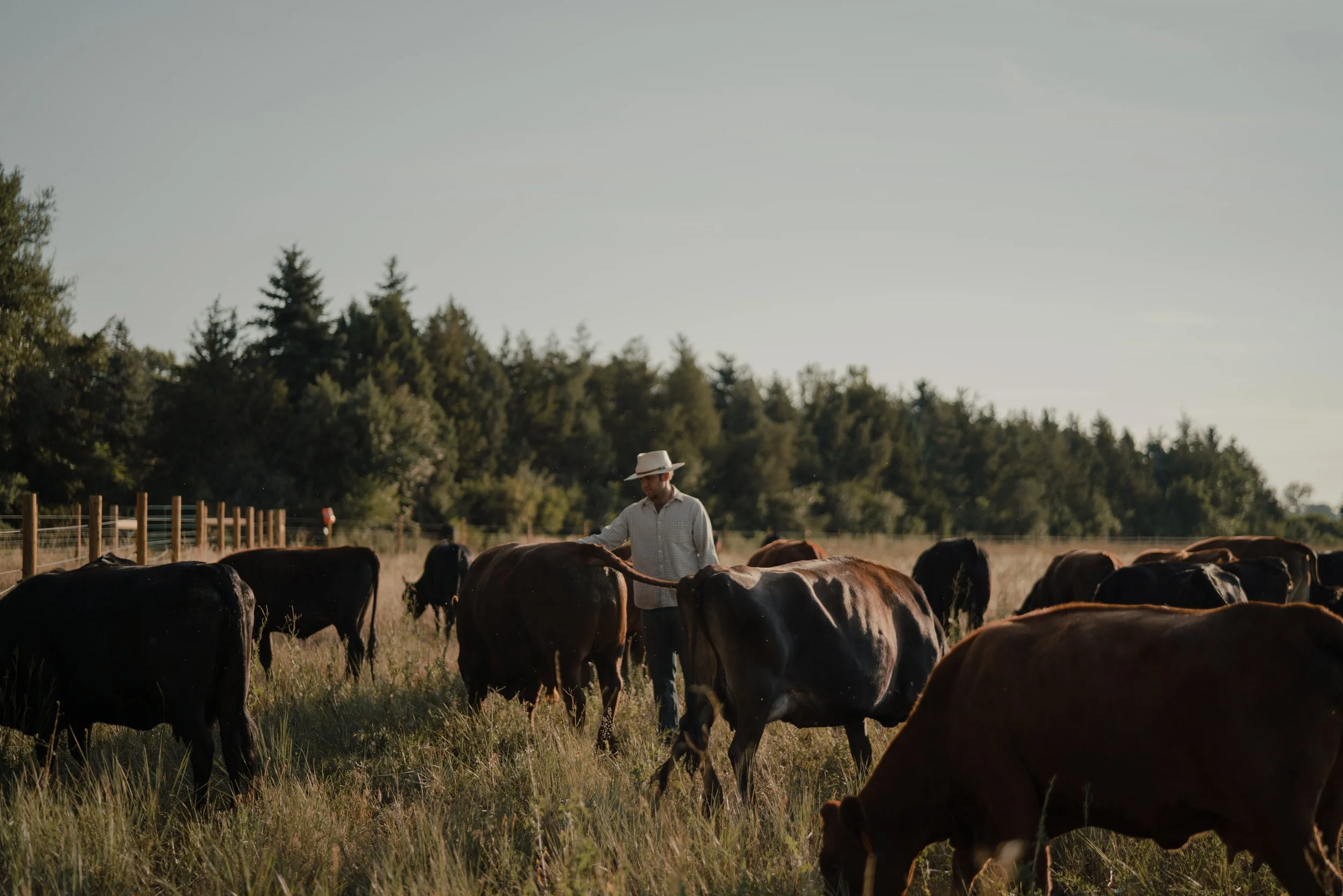
The industrial food system is increasingly failing to fulfill its basic goal: preventing hunger by feeding people adequately and sustainably. Universal Basic Food, distributed through a Community Food Utility, would provide guaranteed access to nutrient-dense, culturally relevant food for free, regardless of income.
“When I think about our food system, I envision a world with a multitude of local and regional food systems. Where resilience is a more central goal than efficiency and where we have food rooted in community and food sovereignty.”
The Impacts of an Industrial Food System
Our current system is rooted in the belief that food is an object that must be traded for as little money as possible neglecting that access to food is a human right. This leads to major impacts on our environment, local economies, and health.
Environment: industrial farming practices and global supply chains lead to environmental degradation
Local Economies: a handful of large corporations own most agriculture and food markets, extracting more wealth than they contribute.
Health: prevalence of low-nutrient food and high costs for fresh, nutritious foods leads to widespread health issues.
By having community at the center of the decision-making process, we can transition our food system to one that values equity, sustainability, and health over profit for the corporate elite. Through value-chain coordination, led by food culture and values specified by our community, the utility will utilize food procurement as a lever for change to address historic, systemic and oppressive challenges that uphold our current industrial food system.
When led by community, not markets, we can achieve food sovereignty and end chronic hunger in our community.
Stay up to date on our work and get involved!
Sign up for our Community Food Utility newsletter, From the Ground Up.
The Community Food Utility Model
Hunger is a market failure. Food security has not been and will not be sufficiently provided by markets or food assistance programs. Markets work well for those who can afford to buy nutritious foods; however, those unable to afford food are excluded from their most basic human right: access to food. This leads us to envision a public utility as a viable solution.
A community food utility allows the decisions regarding the production, buying, and distribution of food to be determined democratically by the utility members (community) rather than by a select few people who control big food businesses.
Powers and authority common to public utilities, including the exclusive ability to operate or provide services within defined geographic boundaries, regulated use of public funds, and the ability to set and enforce standards, provide a comprehensive set of tools to ensure everyone has access to food.
The CFU can contribute to the economic security of community members, especially BIPOC growers, makers, and business owners, addressed through community values and utility management of procurement standards.
Community Food Utility Program Areas
Based on our research with New Impact, we identified these five potential program areas. True food sovereignty requires co-creating solutions with producers, distributors, and consumers. These programs will evolve and change as we work to develop a Community Food Utility.
-
This flagship program will provide a selection of high-quality, nutrient-dense, desired, and culturally connected food items, freely available to all utility members at select locations near public transportation throughout the county. Community members select UBF’s food items, sourcing priorities, and quality standards.
-
A wide selection of food and household items discounts will be available at UBF food retailers/depots and competing retailers. Through partnerships with network retailers, food important to community but not within sourcing guidelines can be offered at discounted rates.
-
Given recent climate, health, and supply chain pressures, a food utility recognizes the need to strengthen the resilience of local food systems. The utility will ensure that a 30-day supply of shelf-stable goods are in stock and readily available to all residents in case of emergency.
-
Residents will have the potential to receive predictable, steady monthly cash stipends to spend on preferred food not offered in the UBF program or other needs. In addition, based on the performance of the utility, residents can receive cash dividends, when available, when utility revenue exceeds expenses.
-
In order to leverage data as a disruptor for good, a Community Data Commons can be created, enabling residents to earn money from their collective purchasing data, if they choose to participate. Greater participation in the program will increase the power of the commons and benefit all. All data will be aggregated, indivisible to a single individual.
